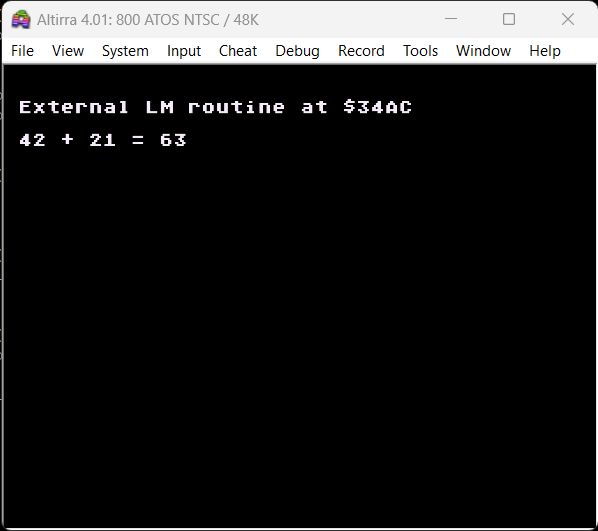EXTERNAL INTEGRATION: CALL EXTERNAL MACHINE LANGUAGE FILE (USING STACK)
This small example explains how to invoke external machine language, loaded from a binary file on the system into a specific location. The external machine routine will receive parameters from stack and store the result on the stack.
source
compile
sandbox
issues?
back to examples


